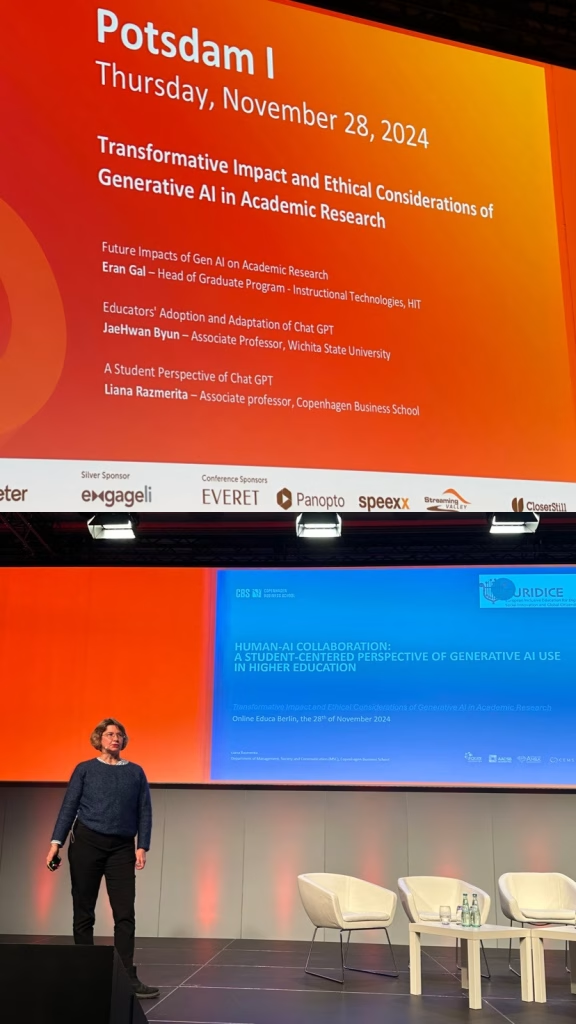At Online Educa Berlin (OEB), the leading international cross-sector event on technology-supported learning and training, held in Potsdam this year, from November 27–29, 2024, Liana Razmerita delivered a compelling presentation in the session titled “Transformative Impact and Ethical Considerations of Generative AI in Academic Research.” OEB had about 2000 participants from both academic and private business sector.
This session featured four speakers who delved into the challenges educators encounter when integrating generative AI tools into teaching and research practices, emphasizing the importance of critical reflection and diverse perspectives on ethical and practical considerations. Participants explored the latest generative AI tools for academic research, focusing on enhancing creativity and efficiency while addressing ethical implications and societal impacts. The insights highlighted the transformative potential of generative AI in fostering a student-centered approach and effectively managing modern learning environments.
Liana’s presentation, “Human-AI Collaboration: A Student-Centered Perspective of Generative AI Use in Higher Education,” showcased findings from her study conducted at Copenhagen Business School between March 2023 and July 2024. The findings of the study involved the benefits and drawbacks of generative AI perceived by students, ethical and responsible AI use and ethical challenges in AI use.
The panel was entitled: “Transformative Impact and Ethical Considerations of Generative AI in Academic Research” , Online Educa Berlin. The audience of the conference and of the panel discussions were both professionals and teachers so the talk could fit into WP3, WP4 and dissemination. My talk was about Human– AI Collaboration: A student Perspective of Generative AI in Higher Education.

This was the 30th edition of Online Educa Berlin (OEB).
*) The feautured image of this post is generated by Dall-E on 17 January 2025.
